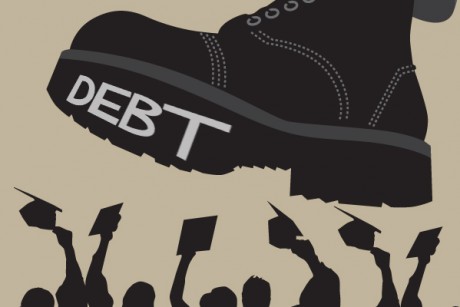Student loans have become a burden on the US economy! Every second, students accumulate $2,858 in debt. And it doesn’t sound any better when you go from the total debt to the individual credit.
If you borrowed money to pay for your tuition, you’re expected to pay around $37,000 in return. But, most probably, you already know that, as you do the math every month to find new methods to keep up with the expenses.
When you pay between $200 and $350 each month just for your student debt, it’s hard to make a living. And if this wasn’t enough, most millennials receive about 20 percent less than what Baby Boomers were earning at the same age.
Saving money without quitting on the things you love seems impossible. On the other end, deprivation and a too frugal lifestyle can add up stress and a lack of motivation to your current problems. After all, what’s the point in working extra hours if you can’t afford the already famous $19 ‘avocado toast’ and a cup of coffee to go?
You need to find a balance between your current expenses and your income. Whether you decide to cut your outgo or to increase earnings, you need to find a way to live with what you earn. Otherwise, you’ll end up with making extra debt due to credit card loans and pay even more in interest and fees.
Keep Track of Your Expenses
Statistics can give you an idea of where your money goes every month:
- 10 percent for food;
- 1 percent for alcohol;
- 16 percent for the roof on your head;
- 5 percent for utilities;
- 3 percent on clothing;
- 13 percent for transportation;
- 4 percent on entertainment.
These amounts can vary, depending on where you live and how much you earn. The only way to find out how much you spend for each of these categories is if you track all your expenses.
Consider everything, from coffee and groceries to clothes to taxes, phone contracts, and movie tickets. Luckily, you can use an app to make things easier, so you don’t have to write everything down in your notebook.
Budgeting is an efficient method to make the most of every dollar you earn. When you analyze your spending habits, you can make adjustments without having to quit on what makes you happy.
Do More with Less
When you’re living from paycheck to paycheck (or when you want to save more money), you should learn smart spending. Which means getting the same benefits with smaller costs.
Once you start tracking your expenses, you’ll see there’s a lot of room for improvement in your budget. Here are some examples:
- Making a grocery list instead of buying too much food;
- Eating out fewer times a month;
- Using sale periods for buying appliances, electronics, or furniture;
- Reducing online shopping sessions;
- Getting an economical cable package;
- Saving energy to lower electric bills;
- Passing to a cheaper phone plan.
Depending on your needs and lifestyle, you can try to change your spending habits, to leave more money for the things you love, without missing loan payments.
Find Yourself More Sources of Income
Do you already have a frugal lifestyle, but there’s still too much on your plate when it comes to expenses? Maybe it’s time to get a better job. Or, to find yourself some alternatives.
The gig economy provides a wide range of job offers for freelancers and skilled people who want to earn some extra money. By putting your knowledge to work, you can make enough money to cover your student loan monthly payment.
Freelancers can earn between $19 and $31 per hour, depending on their skills and experience. It’s not the safest source of income, but if you use it as an extra (besides your job), you can make the extra money you need to buy everything you love — including the popular ‘avocado toast.’
Refinance Your Student Loan
In most cases, your student debt is the leading cause of most of your financial problems. There’s so much you could do with $37,000: a brand new car, a down payment for your first house, or even a wedding.
You can’t get this money back. But you can try to cut down expenses through student loan refinancing. This solution can lower your monthly payment — you get more freedom when you have more money in your account. In the long run, refinancing can also help you save on interest, which means more money for you.
This method turns into a good deal when you have a good credit score. So, to get the most of refinancing, try to keep credit card debt low.
To Wrap It All Up
Dealing with student debt is anything but easy. However, just because you have a student loan to pay off, it doesn’t mean you should quit on all the things that make you happy.
You don’t have to give up on your guilty pleasures, at least not on all of them. Between learning to budget efficiently and refinancing your loan, you can come up with many creative solutions to keep expenses lower than your income.





Leave a Reply